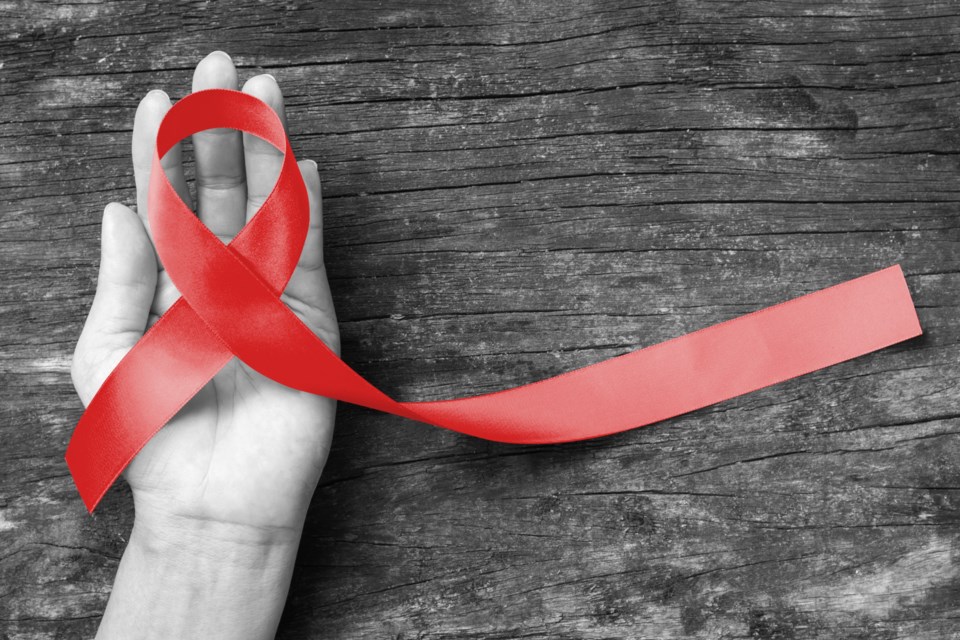It has been 40 years since the onset of the HIV/AIDS pandemic. The International AIDS Candlelight Memorial is a time not only to remember the many lives lost to AIDS, but also to reflect on the stories of long-term survivors and caregivers.
These stories must inform our practical response to HIV today both in policy and for social equity. The wisdom of these stories can also improve our responses to COVID-19, future pandemics and other contemporary crises.
Many early depictions of HIV/AIDS focus on the experience of gay communities in the United States, or the United Kingdom in the recent television series It’s a Sin.
However, HIV/AIDS has deeply affected, and continues to affect, many different communities in Canada. This includes gay, bisexual and queer men, who are still disproportionately affected by the pandemic, as well as women, Indigenous people, transgender people and African, Caribbean and Black people, who are often overlooked in HIV policies and histories.
People who live at the intersections of marginalized communities face unique barriers.
As multidisciplinary HIV researchers, we know how important it is to continue learning from these histories to improve HIV treatment, support and prevention efforts today.
So far, we have conducted 116 oral history interviews with long-term survivors of HIV and their caregivers in British Columbia between 2017 and 2020 as part of the community-based HIV In My Day project. These interviews will soon be available in a publicly accessible digital archive.
Grassroots advocacy and activism
Our oral history research identified a lack of support and information for people living with HIV and their caregivers. It documents their experiences of HIV stigma in both health care and society, and the loss of their lovers, friends and community members.
It also illustrates the community care and resilience that helped them deal with the emotional impact of HIV/AIDS, and the grassroots advocacy that was necessary to improve medical responses.
HIV In My Day is a collection of diverse stories that provides a nuanced picture of the early years of the HIV/AIDS pandemic in B.C. These stories demonstrate the importance of people coming together.
Marginalized communities mobilized in response to shared public health challenges that were exacerbated by structural forms of oppression. These personal stories highlight the living history of HIV, including experiences of isolation, discrimination, caregiving, positive thinking and activism.
Gay, bisexual and queer men were at the epicentre of HIV/AIDS in B.C. in the early years of the pandemic and while many of them lived with and died of AIDS, the lesbian and gay communities came together to care for each other in the face of government apathy towards HIV/AIDS rooted in homophobia.
Early community-based AIDS organizations built on previous gay activism. Our participants recount establishing AIDS Vancouver and B.C. Persons With AIDS Society (later Positive Living BC), which provided critical education and support to community members. Early HIV activist groups like ACT UP Vancouver raised awareness about the pandemic.
Marginalized communities
Our participants noted, however, that these organizations were not always inclusive of other marginalized communities who were increasingly dealing with HIV/AIDS. People in Vancouver’s Downtown Eastside — including Indigenous people, women, people experiencing poverty and people who inject drugs — lacked access to the same important resources.
While these organizations eventually expanded their reach, women and Indigenous communities developed their own networks of care that were responsive to a multitude of complex social factors like sexism, racism, settler colonialism and classism.
The living history of HIV demonstrates how pandemics reinforce pre-existing social inequities. COVID-19, for example, disproportionately impacts immigrants and racialized people in Canada today. The opioid crisis has been especially severe among Indigenous people and other marginalized communities.
HIV histories provide examples of how to better address these inequities. These histories illuminate decades-long trajectories of community care and activism that confront anti-Black and anti-Indigenous racism, as well as the persistent violence against transgender and gender-diverse people in Canada.
Speaking about the ongoing opioid crisis in Canada, one participant said: “I look at that epidemic and think why is it even happening? We’ve already been through this.”
Addressing inequities and injustice
So, what can we learn about responding to these crises from the perspectives and experiences of our participants?
“Even if we have differences, we work together…it is possible to change minds or inform people who have misconceptions…that contribute to hostile responses to people in need.”
Long-term survivors of HIV and their caregivers remind us to address social inequities, especially during pandemics. This is not only beneficial for marginalized communities, but important for the rest of society as our health and well-being are connected to one another.
HIV In My Day provides moving personal stories of how individuals and their communities responded to the tragedy and injustice of the HIV/AIDS pandemic by challenging prejudice and being more inclusive.
Let’s remember these examples and follow them in our ongoing responses to HIV/AIDS and other crises challenging society. We must face them together, now and in the future.
This article was co-authored by Ben Klassen, research manager at the Community-Based Research Centre. He has co-ordinated the HIV In My Day study since 2017 and holds an MA in history from Simon Fraser University.![]()
Michael Montess, Postdoctoral Fellow, Public Health & Social Policy, University of Victoria and Nathan John Lachowsky, Associate Professor, Public Health & Social Policy, University of Victoria
This article is republished from The Conversation under a Creative Commons license. Read the original article.
